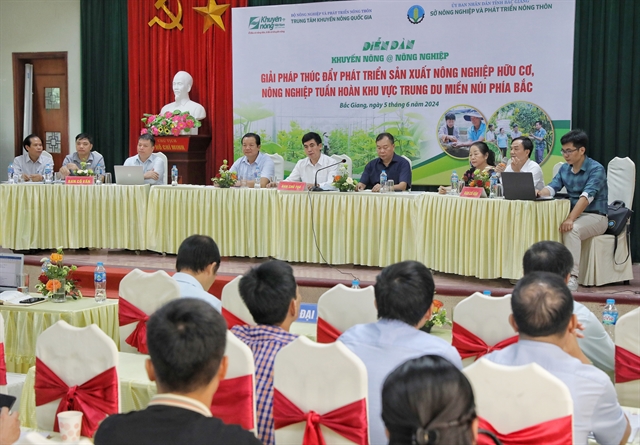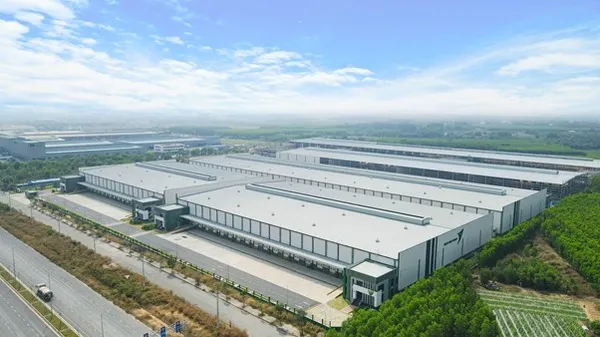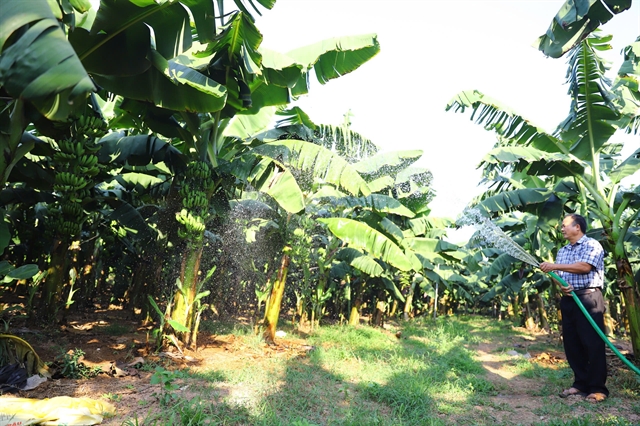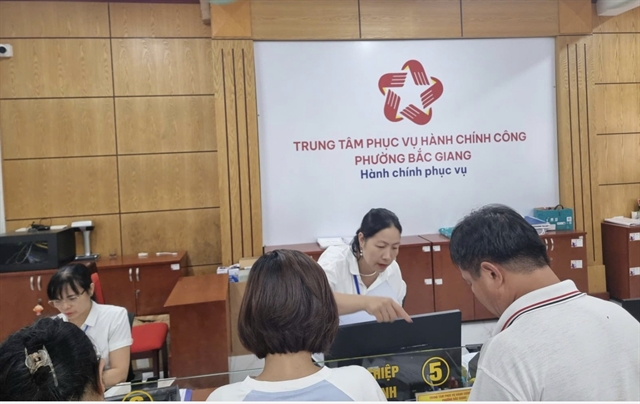 Economy
Economy

 |
| Hà Nội has established several banana cultivation areas that are safe and meet export standards, providing farmers with high economic returns of up to VNĐ200 million (US$8,100) per hectare per year. —VNS Photo |
HÀ NỘI — Hà Nội is actively restructuring its agricultural sector by focusing on clean, green and high-quality agriculture that aims to grow sustainable exports.
The capital city is focused on modernising its agricultural production and creating value chains by helping local areas set up concentrated and safe production zones for key products. This strategy aims to attract business investment and build brands for agricultural products that meet export standards.
Trịnh Thị Nguyệt, Director of Đồng Phú Organic Agricultural Cooperative in Chương Mỹ District, said that the cooperative has 42ha of rice certified as organic under US standards. Farmers follow strict production processes, enabling smooth sales, with companies paying about 30 per cent more than for standard rice.
Currently, Đồng Phú organic rice is popular with domestic consumers and is exported to markets like Germany, as well as potential markets such as the US, Japan and South Korea, Nguyệt said.
Hoàng Thị Hậu, Director of Thanh Xuân Organic Agricultural Service Cooperative in Sóc Sơn District, said that their 31ha organic vegetable production area is tightly controlled from cultivation to packaging. The cooperative produces about five tonnes of vegetables daily for nearly 100 retail stores in the city, generating around VNĐ20 billion (US$800,000) in annual revenue. Some products, like spices and green squash, have been exported to France and Germany.
Hà Nội has over 13,000 agricultural, forestry and fishery businesses, including more than 1,700 processing facilities and over 250 agricultural companies. The city has 16 codes for fruit cultivation areas and four packaging facilities, each capable of handling 30 to 50 tonnes per day for exports, with eight codes for bananas and eight for longans.
The agriculture sector in Hà Nội has collaborated with 43 localities to develop 926 safe food supply chains, connecting local exporters with production chains. This proactive effort enables Hà Nội to export high-quality agricultural products to countries like the US (late harvest Đại Thành longan), Germany (Đồng Phú organic rice), South Korea (Văn Đức vegetables) and China (Hồng bananas).
Hà Nội also has significant export potential in rice (about 7,000ha of Japonica rice), vegetables (over 5,000ha), organic vegetables (over 50ha) and various high-quality processed products.
The Hà Nội agricultural sector has partnered with local authorities to assist agricultural, forestry and fishery businesses in implementing quality management programmes like VietGAP, HACCP and ISO 22000 to improve quality and ensure food safety. This shift to clean agriculture has transformed farmers' practices, leading to economic efficiency that is 10 to 15 per cent higher than traditional methods.
Since 2019, through the 'One Commune One Product' (OCOP) programme, Hà Nội has developed 2,756 OCOP products, including six five-star products, 12 potential five-star products, 1,491 four-star products and 1,247 three-star products. In 2024, the city aims to assess and rank nearly 500 products to help OCOP entities enhance their value and quality to meet rising consumer demands domestically and internationally.
Tạ Văn Tường, Deputy Director of Hà Nội’s Department of Agriculture and Rural Development, said that while many factors affect export capacity, standardising products is essential. Ensuring safety and quality increases the likelihood of overcoming technical barriers and accessing export markets.
Hà Nội is raising awareness of trade agreements and import requirements to enhance production capacity and product quality, Tường said, adding that strengthening connections, promoting trade and organising foreign market activities are key components of Hà Nội's agricultural export strategy.
At a recent conference on Hà Nội's agricultural sector, Nguyễn Mạnh Quyền, Deputy Chairman of the Hà Nội People's Committee, stressed the need for tailored plans that prioritise clean, green and high-quality agriculture for exports. He urged collaboration between sectors, localities and businesses to develop value chains.
The Department of Agriculture and Rural Development should collaborate with districts to create large-scale production areas connected to processing and focus on breeding development for competitive advantages. They should also identify market segments and unique models that highlight Hà Nội's agricultural strengths, Quyền said. — VNS




